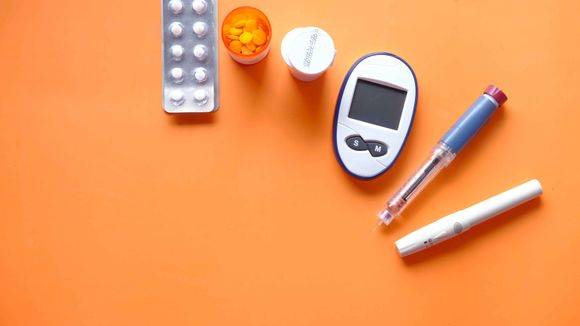What is diabetes?
Diabetes is a disease that occurs when blood sugar (blood glucose) is too high and this may be due to insulin resistance (type 2 diabetes) or the inability to produce insulin (type 1 diabetes). [ref. 1]
Type 1 diabetes is usually diagnosed in childhood. In contrast, type 2 diabetes can develop at any age, but is more common in older adults. [ref. 2]
There is also a prediabetic condition that occurs when blood sugar is higher than normal, but not high enough to be diagnosed with type 2 diabetes.
Early signs and symptoms of diabetes
Frequent urination
When your blood sugar is high, your kidneys filter out excess blood sugar, causing you to urinate more often. One of the early warning signs of diabetes is frequent urination, which is urgent enough to wake you up even during sleep [ref. 3].
Increased thirst
It became clear that your kidneys work hard and therefore you urinate more often, and valuable fluids are withdrawn from the tissues. Frequent urination will make you feel constantly thirsty and looking for more water, and you may also feel an insatiable thirst.
Fatigue

When blood sugar is high, the body works hard to get rid of excess sugar. This process not only affects your body, but also changes the way it uses glucose for energy. Excessively high blood sugar or hyperglycemia exhausts the body, among other symptoms. In addition, dehydration, which accompanies more frequent urination, is a common cause of fatigue in people with diabetes.
Blurred vision
High blood sugar can cause damage to the small blood vessels of the eye, leading to swelling of the lens of the eye, which can cause blurred vision. As blood sugar levels rise and fall, your vision may return to normal or deteriorate over time.
Increased appetite
When you have high blood sugar levels, the body actively seeks to normalize blood sugar levels. In diabetes, the body excretes much of the glucose you get from your diet, and therefore you may have an increased appetite.
Unexplained weight loss
By disposing of excess glucose, you lose your greatest energy supply, and when your body is unable to use glucose for energy, it begins to burn fat and muscle, leading to weight loss and other disorders. Unexplained weight loss is considered to be a loss of at least 5% of total body weight.
Slowly healing skin injuries and wounds
Like damaged eye tissue causing blurred vision, damaged blood vessels cause weakened blood circulation. Because of this, it is more difficult for blood to reach the affected area, and minor cuts or wounds can take weeks or months to heal. This slow healing increases the risk of infection of unhealed cuts and wounds, but with good hygiene, things can be controlled.
Numbness of the hands or feet
High blood sugar can have a significant impact on the nerves and nervous system. This damage can start with a tingling or tingling sensation and can turn into neuropathy over time.
Risk factors for developing diabetes
If you find that you have risk factors for developing diabetes, it's important to take extra care to prevent it from occurring. Some common risk factors include:
- Age 45 or over
- Overweight or obese
- Sedentary lifestyle
- Family history of diabetes
- History of gestational diabetes
- History of high blood pressure, heart disease or stroke
- Belonging to a particular ethnicity - African Americans, Alaska natives, American Indian and others.
You should not ignore the signs of diabetes

It's hard to ignore the signs of type 1 diabetes because symptoms can often appear quite quickly. But if left untreated, the disease can lead to serious health problems, including diabetic ketoacidosis.
Although the majority of people with type 1 diabetes are diagnosed in childhood and early adulthood, the symptoms are the same at any age. Adults with type 1 diabetes may not recognize their diabetes symptoms as quickly as children, which may mean that their diagnosis and treatment may be delayed.
Type 2 diabetes may be easier to ignore because it develops more slowly, especially in the early stages when it can be harder to spot symptoms. But untreated diabetes affects many major organs, including the heart, blood vessels, nerves, eyes, and kidneys. Early diagnosis and management of blood sugar levels can help prevent these complications.








